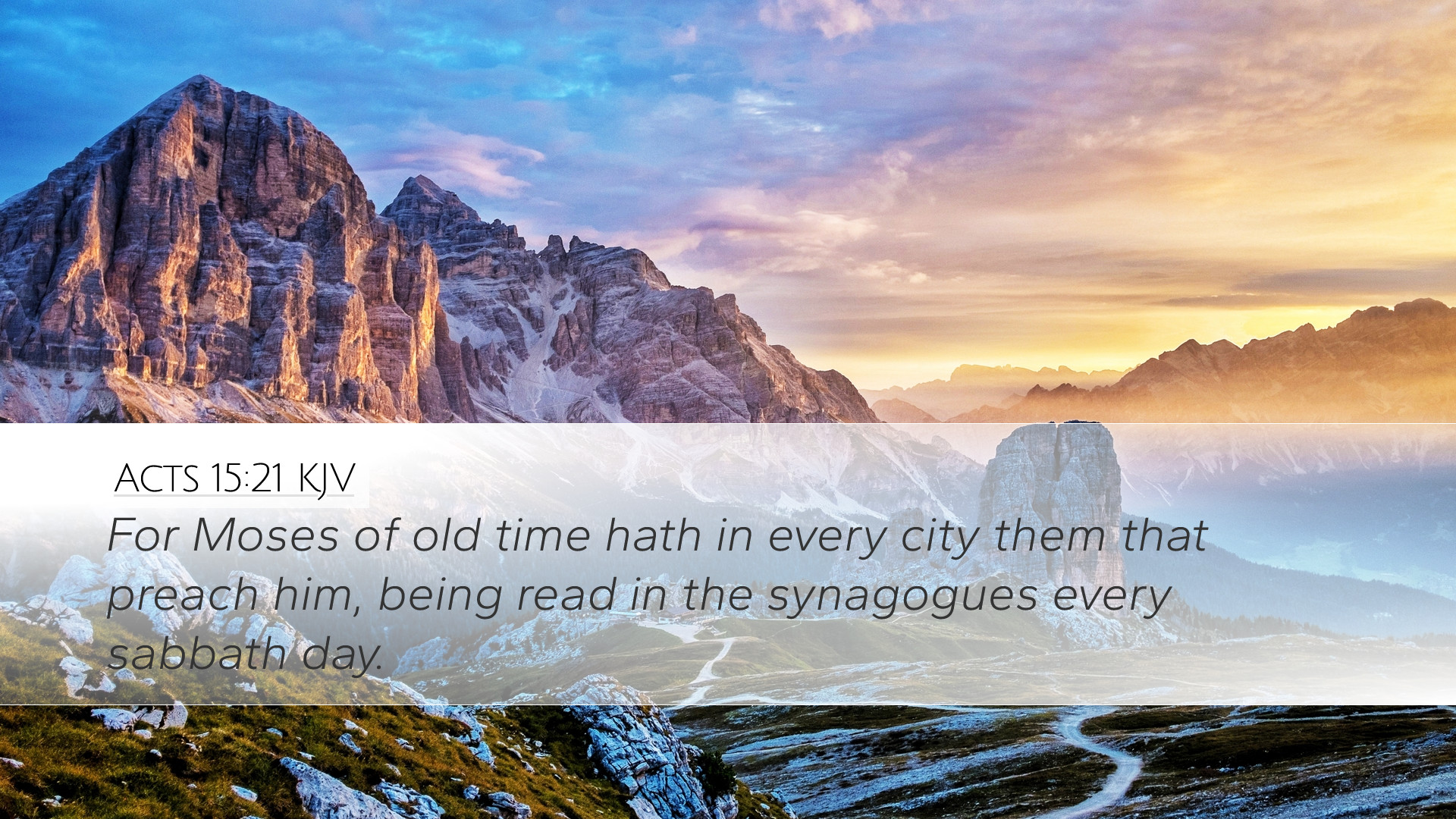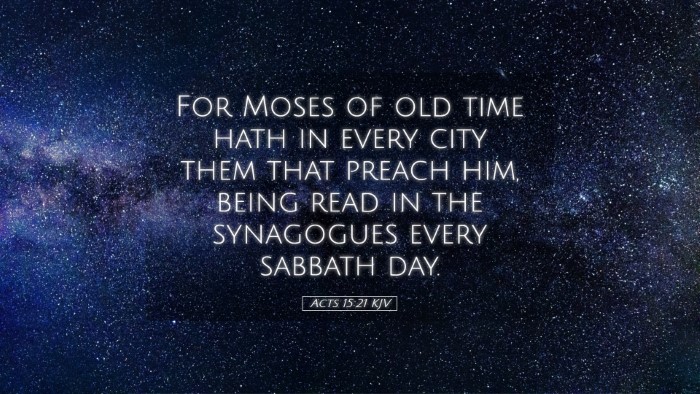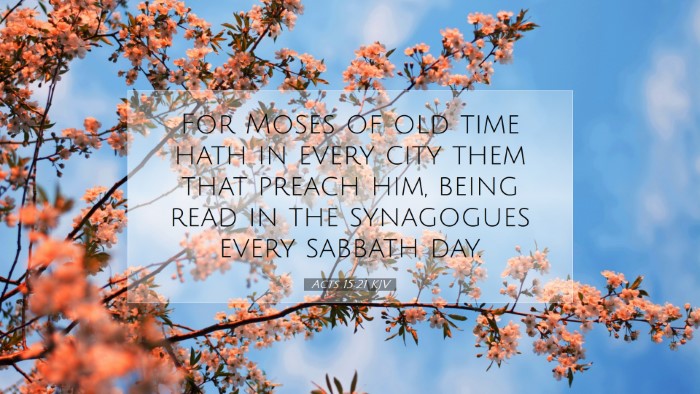Commentary on Acts 15:21
Acts 15:21 states:
"For Moses has had throughout many generations those who preach him in every city, being read in the synagogues every Sabbath." (NKJV)
This verse is situated in a pivotal moment of the early Church, during the Jerusalem Council, where key leaders debated the requirements for Gentile believers. Understanding this passage requires a look at its implications for both the Jewish and Gentile communities, as well as its broader theological implications.
Context of Acts 15:21
This verse emphasizes the longstanding tradition of the Mosaic law and its continual proclamation in Jewish synagogues. It reflects the reality that the teachings of Moses were consistently present, providing a foundational aspect of religious life for the Jews while also informing the Church’s understanding of the law's role for Gentile converts.
The Role of Moses in Early Christianity
Moses represents the Law, and his teachings served as a significant point of reference for both Jewish believers and Gentile converts. The mention of Moses being preached in every city indicates the unbroken line of Jewish teaching and the authority it carried. This evokes several reflections:
- Importance of Continuity: The continuity of teaching from the Old Testament to the early Church is critical for understanding how the Apostles viewed their mission. There was no intention of discarding the law but rather of understanding its fulfillment in Christ.
- Mandate for Evangelism: The verse underscores the missionary aspect of early Christianity. The spread of the message of Moses through synagogues highlights the early Church’s approach to evangelism, targeting both Jewish and Gentile audiences.
- Significance of the Sabbath: The mention of the Sabbath reflects a rhythm of worship and community that would have been familiar to both Jews and Gentiles. It points to a time of reflection, teaching, and spiritual nourishment.
Insights from Public Domain Commentaries
Matthew Henry's Commentary
Matthew Henry emphasizes:
- The necessity of the law's proclamation as a guide for moral living among the Gentiles.
- He argues that while the Apostolic directive did not impose the full weight of Mosaic Law on Gentile converts, the mention of Moses declares the importance of moral and ethical teaching derived therefrom.
Albert Barnes' Notes
Barnes interprets the verse within the larger discourse of the council, highlighting:
- The awareness among the apostles of the law being read and debated among many communities demonstrates a cultural engagement, indicating that God’s law is a universal provision.
- He notes the strategic positioning of the Jewish scriptures as foundational, which helps to bridge the understanding between the Jewish origin of the faith and the outreach to Gentiles.
Adam Clarke's Commentary
Clarke offers insights into:
- The historical context in which this verse is situated, pointing to the synagogue's role in shaping the religious education of both Jews and Gentiles.
- He emphasizes that while Gentiles are not bound to adhere fully to the Jewish law, they are expected to learn from its ethical teachings and moral implications.
Theological Implications
Acts 15:21 invites deeper theological reflection on several fronts:
- Grace and Law: The coexistence of grace with the ethical teachings of the law suggests a harmony rather than a dichotomy. This foundation calls believers to embrace both the grace of Christ while living a life reflective of Jesus’s ethical standards.
- Inclusivity in Salvation: The gathering of the council signifies the early Church's understanding of inclusivity. Salvation through faith is open to all, making the inclusion of Gentiles not only permissible but theologically necessary.
- Cultural Engagement: The necessity of remaining rooted in Old Testament teachings while engaging with diverse cultures presents the Church with a model for contemporary ministry and outreach.
Application for Today’s Church
For modern pastors, students, and theologians, Acts 15:21 has several applicable lessons:
- Teaching and Discipleship: The Church is called to proclaim the totality of God’s Word, integrating both the Old and New Testament teachings into its teaching and discipleship processes.
- Ethics in Scholarship: As scholars study scripture, they must consistently reflect on how to translate the moral imperatives of the Bible into contemporary applications.
- Bridge-Building Among Cultures: The Church today faces a multicultural landscape, and the principles gleaned from this scripture encourage engagement and dialogue across cultural divides.
Conclusion
In summary, Acts 15:21 serves as a vital connection point between the Old and New Testaments, illustrating the ongoing relevance of Moses's teachings for both Jewish and Gentile believers. As the Church continues to navigate complex cultural and theological waters, this verse reminds believers of their roots in God's overarching redemptive plan and the inclusive nature of the Gospel message.


